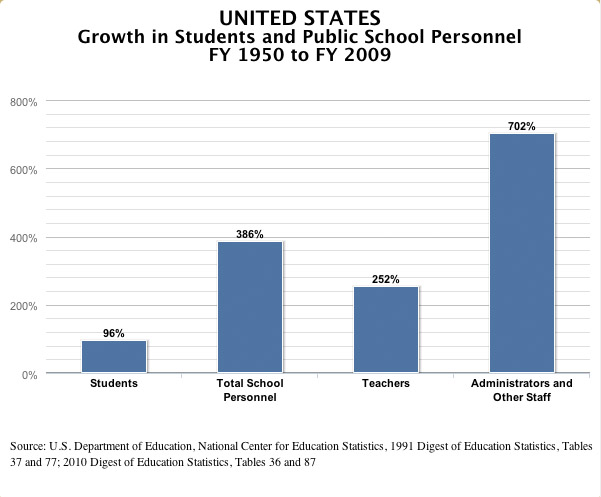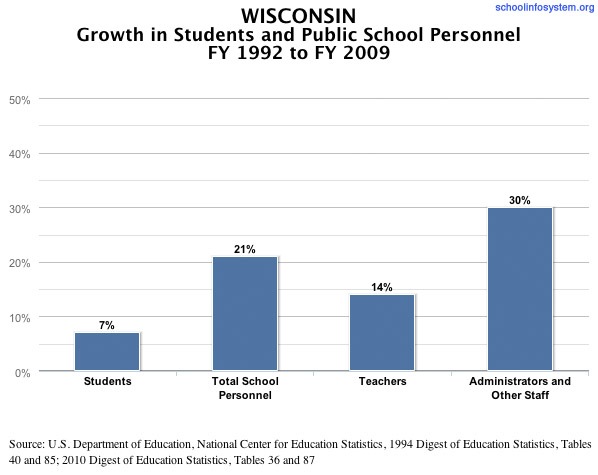In a recent opinion piece, James L. Huffman requests Oregonians to ask “why those who run our public schools have seen fit to increase their own ranks at three times the rate of growth in student enrollment while allowing for a small decline in the number of teachers relative to students” (“Oregon’s schools: Are we putting money into staff at students’ expense?” Commentary, Nov. 17).
He references a report by the Friedman Foundation for Educational Choice that uses data from the National Center for Education Statistics to document that K-12 personnel growth has outstripped K-12 student enrollment growth. The data are completely accurate, but the conclusions Huffman and the report reach are erroneous.
Huffman writes that some might be suspicious of the foundation as the source of the data. In reading the report’s conclusion (pages 19-22), such suspicion is justified.
Related: The School Staffing Surge: Decades of Employment Growth in America’s Public Schools:
America’s K-12 public education system has experienced tremendous historical growth in employment, according to the U.S. Department of Education’s National Center for Education Statistics. Between fiscal year (FY) 1950 and FY 2009, the number of K-12 public school students in the United States increased by 96 percent while the number of full-time equivalent (FTE) school employees grew 386 percent. Public schools grew staffing at a rate four times faster than the increase in students over that time period. Of those personnel, teachers’ numbers increased 252 percent while administrators and other staff experienced growth of 702 percent, more than seven times the increase in students.
In a recent Heritage Foundation Backgrounder, Lindsey Burke (2012) reports that since 1970, the number of students in American public schools increased by 8 percent while the number of teachers increased 60 percent and the number of non-teaching personnel increased 138 percent.
That hiring pattern has persisted in more recent years as well. This report analyzes the rise in public school personnel relative to the increase in students since FY 1992. Analyses are provided for the nation as a whole and for each state.
Between FY 1992 and FY 2009, the number of K-12 public school students nationwide grew 17 percent while the number of full-time equivalent school employees increased 39 percent, 2.3 times greater than the increase in students over that 18-year period. Among school personnel, teachers’ staffing numbers rose 32 percent while administrators and other staff experienced growth of 46 percent; the growth in the number of administrators and other staff was 2.7 times that of students.
1.2MBPDF report and,
Ripon Superintendent Richard Zimman:
“Beware of legacy practices (most of what we do every day is the maintenance of the status quo), @12:40 minutes into the talk – the very public institutions intended for student learning has become focused instead on adult employment. I say that as an employee. Adult practices and attitudes have become embedded in organizational culture governed by strict regulations and union contracts that dictate most of what occurs inside schools today. Any impetus to change direction or structure is met with swift and stiff resistance. It’s as if we are stuck in a time warp keeping a 19th century school model on life support in an attempt to meet 21st century demands.” Zimman went on to discuss the Wisconsin DPI’s vigorous enforcement of teacher licensing practices and provided some unfortunate math & science teacher examples (including the “impossibility” of meeting the demand for such teachers (about 14 minutes)). He further cited exploding teacher salary, benefit and retiree costs eating instructional dollars (“Similar to GM”; “worry” about the children given this situation).

